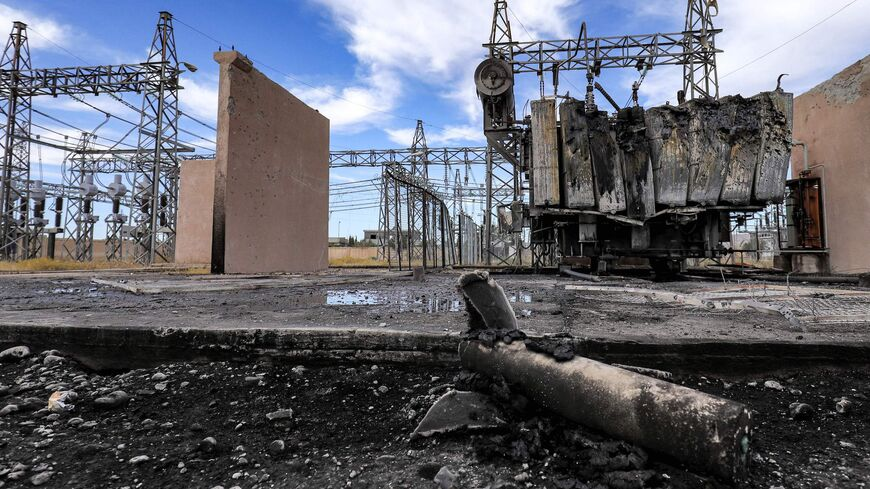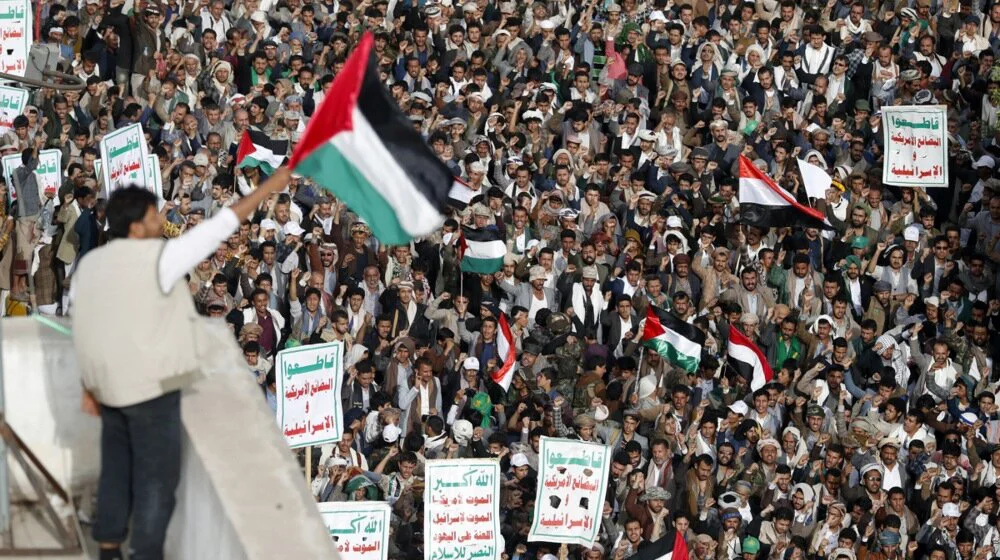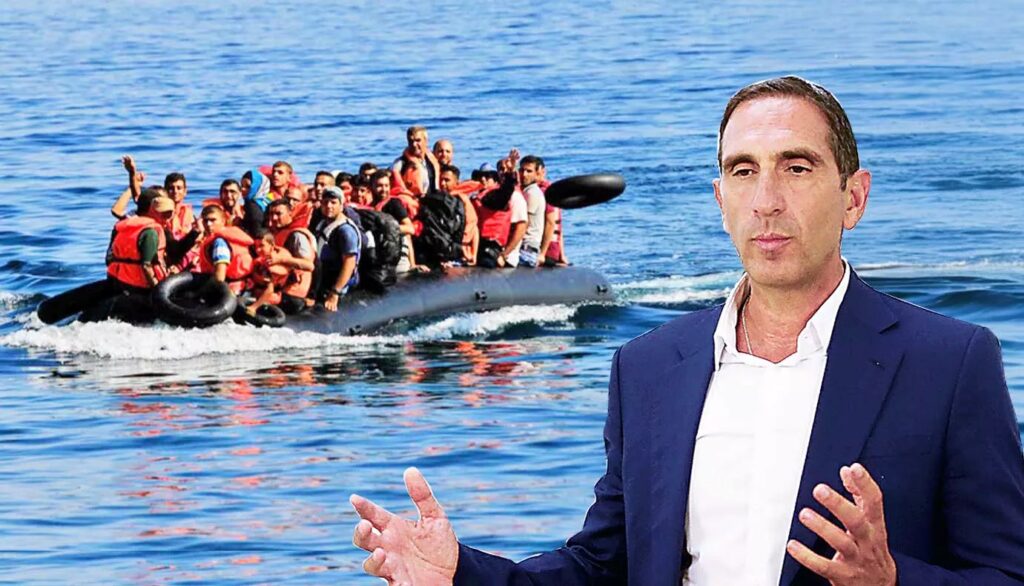
“We stand with Artsakh,” reads a poster using the Armenian name for Nagorno-Karabakh that hangs at Mirzoyan Library, a popular cafe and hangout spot for local hipsters and Russian emigres in the heart of the Armenian capital.
This place was recently transformed into a hub for humanitarian aid as volunteers started collecting and distributing boxes filled with clothing, shoes, food, hygiene products and children’s toys to assist refugees from Nagorno-Karabakh.
During a visit by a Moscow Times reporter last week, Russian and Armenian volunteers were packing cars with humanitarian aid destined for tens of thousands of refugees pouring into Armenia from the disputed territory.
A number of Russians who relocated to Armenia when Moscow started its war against Ukraine are now assisting ethnic Armenians who left Nagorno-Karabakh after Azerbaijan launched an “anti-terrorist operation” in the majority-Armenian enclave last month.
The Ethos charity, opened last year by a group of Russian emigres who moved to Yerevan following the Kremlin’s invasion of Ukraine, has had to re-orient its charity work, which initially focused on refugees from Ukraine, toward the influx of Armenian refugees, Ethos head Yevgeny Yevsyukov told The Moscow Times.
In addition to collecting humanitarian aid in Yerevan, the organization has also established distribution points in multiple Armenian cities, including Goris, a city in the southern Syunik province where ethnic Armenians sought refuge from Azerbaijan’s offensive.
Volunteers say they work almost nonstop in Goris, which has taken in a major portion of the 100,000 refugees who fled from Nagorno-Karabakh.
“Refugees were forced to sleep outdoors and use the streets as toilets because local hotels and camps were unable to accommodate everyone,” Yevsyukov said, describing the situation in Goris.
Ethos said it received over 30,000 requests for assistance from refugees in the week following the escalation of the conflict.
Many refugees had to leave their homes in a rush with no opportunity to pack their belongings when Baku lifted its nearly 10-month blockade on Nagorno-Karabakh’s only road to Armenia — a blockade which resulted in dire shortages of medicine, food, fuel and other necessities.
According to Yevsyukov, around 30 businesses and organizations, including Russian companies, are currently providing assistance to Ethos. Volunteers said that along with distributing food and clothes, they also started offering mental health support and legal assistance to refugees.
Ethos is not the only group of Russian volunteers providing assistance to refugees.
“I had no other option because offering help is not something extraordinary. It’s important to help people,” said one Russian woman, who organized a charity event and collected clothes and personal hygiene products for refugees.
“We must do what we can, and if we cannot change the political situation, then we can help those affected by it,” the woman, who recently moved to Yerevan and spoke on condition of anonymity, told The Moscow Times.
Another Russian emigre, Valeria Kopirovskaya, 29, who moved from Moscow to Yerevan last year, has organized charity film screenings to benefit Ukrainian refugees. But she too redirected her charitable efforts towards assisting refugees from Nagorno-Karabakh in recent weeks.
“I am trying to organize classes for children in the refugee camp because their schooling has been interrupted. We are planning to offer needlework and music lessons,” Kopirovskaya said, adding that she was also looking for therapists and psychiatrists for displaced people.
In the neighboring Georgian capital of Tbilisi, Anna, a Russian in her 30s who owns a vintage shop, started collecting clothing donations for Nagorno-Karabakh refugees.
“I thought only a few of my friends would bring their old jackets and hoodies to the store, but in just a week we collected about 200 kilograms of clothes, sneakers, jackets and toys for children,” said Anna, who declined to provide her surname.
According to Anna, the main problem lies in transporting the aid across the Armenian-Georgian border.
“The Armenian customs did not believe that these clothes were for refugees and not for sale and demanded a duty for shipping the cargo, which we cannot pay. We are now trying to enlist the support of the Armenian Embassy in Georgia or the Armenian diaspora,” Anna told The Moscow Times. “As a last resort, we will try to collect donations in order to rent several minivans and transport clothes ourselves.”
In addition to problems with logistics, some volunteers said they had encountered obstacles from local Armenian authorities.
“When the Azerbaijani ‘military operation’ started, we contacted the Goris administration. They provided us with the contacts of 500 families in need of assistance. However, when we delivered the aid, a person from the city administration informed us that the authorities had forbidden them from accepting our aid,” Yevsyukov told The Moscow Times, adding that “the local authorities said they don’t need help.”
According to Yevsyukov, Ethos’ office in Yerevan was also raided by police officers who checked volunteers’ passports.
“It seems as if [the authorities] just don’t want to show that they can’t cope with a huge flow of work,” Yevsyukov said.
The United Nations said this week that up to 1,000 ethnic Armenians remain in Nagorno-Karabakh out of its total population of 120,000.
Baku this week published its reintegration plan that says it guarantees residents of Nagorno-Karabakh — which was an autonomous region within Azerbaijan under the Soviet Union — equality of rights and freedoms, as well as the safety of every resident “regardless of ethnicity, religion, or language.”
However, Armenians said they feared repression and ethnic cleansing from Azerbaijani forces if they were to return.
Many Nagorno-Karabakh residents also felt let down by Moscow when, as they say, Russia’s peacekeepers, who were deployed to the region following the 2020 war between Baku and Yerevan, were unable to prevent Azerbaijan’s offensive last month.
“Refugees react differently to Russians. Of course, some of them are offended and upset because the Russian peacekeepers were passive when Azerbaijan launched its ‘military operation’,” Yevsyukov said, recalling his conversations with people from Nagorno-Karabakh.
“But there was nothing rude to us on their part. They asked where we were from. We answered that we were from Russia.”
“They thanked us.”








